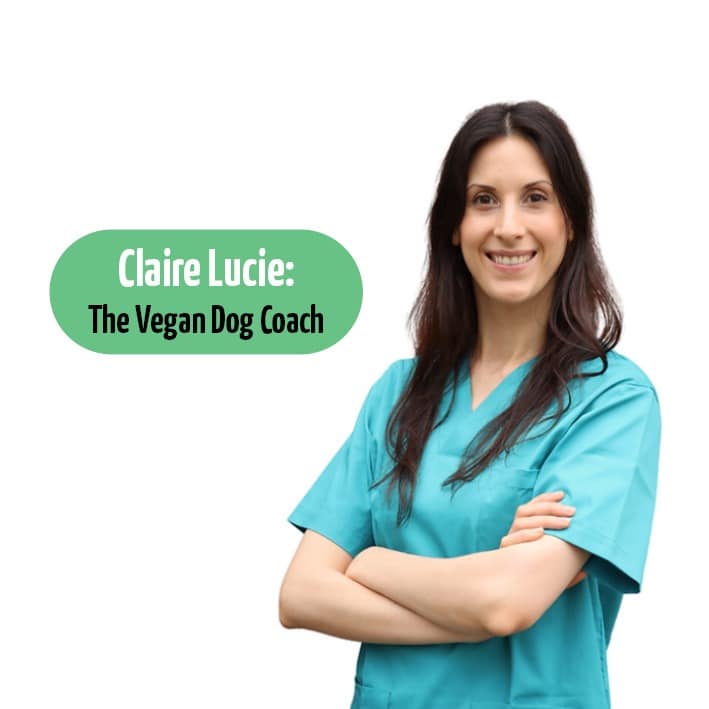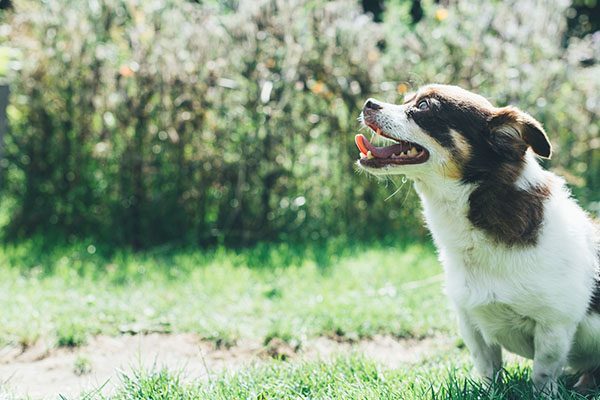Home / The Truth About Taurine In Plant Based Canine Diets

The truth about Taurine in plant-based canine diets
03/10/2024
6 minutes
Author: Claire Lucie
When it comes to plant-based diets for dogs, taurine, particularly taurine deficiency, is by far the most discussed concern. This sensitive issue is fraught with disinformation, outdated ideas, and incorrect common assumptions. To address this, this article will provide you with accurate information, scientific facts concerning taurine in plant-based canine diets.
What is taurine?
Taurine is a type of chemical called an aminosulfonic acid. It occurs naturally in the canine body.
Taurine is classified as a non-essential amino acid for dogs, which means that dogs are producing the Taurine they need from within their bodies.
For dogs, non essential amino acids are defined as follow:
“Non-essential amino acids are defined as amino acids that can be produced endogenously from available nitrogen and carbon sources within your dog’s body, and thus, your dog does not need to consume them in their diet.”
But does this indicate that your dog doesn’t need taurine from animal sources or vegan dietary supplements?
While dogs can, and do, naturally produce all the taurine they need from within their bodies, a few specific breeds, including Newfoundland , Golden Retriever, and Cocker Spaniel, could potentially be more susceptible to taurine deficiency.
However, if your dog is of one of these breeds, it does not necessarily suggest that he or she has a taurine deficit.
If your dog is from one of those breeds and has been diagnosed with taurine deficiency by a veterinarian, a taurine supplement might be prescribed.
While quite rare, a dog’s natural ability to synthesise taurine might be affected by a past or present illness, in which case, a taurine supplement may be prescribed by your vet or canine nutritionist.
How do dogs produce taurine?
Dogs make taurine from other amino acids called cysteine and methionine via the cysteine sulfinic pathway, using vitamin B-6, zinc, and manganese as cofactors.
According to scientific studies: ” There is currently no dietary taurine requirement for dogs due to their ability to endogenously synthesise taurine from its precursors, Methionine and Cysteine.(1)
The fact that taurine isn’t required by dogs, but rather produced by them, is the reason why traditional, meat-based or fish-based dog foods aren’t supplemented with taurine.
The taurine naturally contained in the fundamental ingredients (meat, fish) is destroyed during the manufacturing process, which includes high heat cooking over an extended period of time.
Taurine supplements are rarely added to those foods after the cooking process since they’re considered non-essential and are not required by either the dogs or the legislation.
However, meat and fish-based dog foods are usually supplemented with methionine and cysteine to allow the dog to synthesise taurine.
Taurine supplementation is no more required in plant-based dog food than in meat- or fish-based dog food.
Nevertheless, the addition of taurine is widely used as a marketing tool by plant-based dog food manufacturers, as most dog parents lack access to science-based information about taurine and mistakenly believe that without it, their dogs will become taurine deficient, resulting in cardiac disease and death if fed a plant-based diet.
What is the role of taurine in dogs ?
Taurine is an amino acid that is important for the proper function of your dog’s overall health.
Taurine regulates the blood flow throughout your dog’s body, which helps to strengthen the heart’s walls, and promotes stronger contraction of the heart.
It plays a role in neurotransmission (GABA receptors in the brain) and the stabilisation of fluids within cells.
As an anti-oxidant, taurine helps prevent retinal degeneration and optic nerve damage.Taurine protects your dog’s eye cells from damage caused by oxidative stress, inflammation, apoptosis, and ocular neurotoxicity.
How does the modern way of feeding impact taurine synthesis and absorption in dogs ?
Legumes, including Peas, lentils, chickpeas, and various beans are very widely used in pet foods as fillers, especially in grain-free diets, while grains including wheat, corn, barley, rice, and oats are used in 56% of all pet foods available in the US.
But there’s a major issue; grains, legumes, like seeds and nuts, contain chemicals compounds commonly called anti-nutrients; phytate, tannins, protease inhibitors, calcium oxalate and lectins.
Anti–nutrients are substances that are part of the defence mechanism of plants against possible external attacks, and are found in all parts of these foods, including the seeds and fruits.
When your dog consumes anti-nutrients, they inhibit the absorption of nutrients (vitamins, minerals, and amino acids) from their food, resulting in nutritional deficiencies. Nutritional deficiencies are one of the primary causes of illnesses in dogs. A key concern is that anti-nutrients are heat resistant, and cooking does not eliminate them. Anti-nutrients are found in any pet food that contains grains, legumes, seeds, or nuts.
The same applies to homemade diets that include grains, seeds, legumes, or nuts. In the case of homemade diets, soaking grains and legumes removes antinutrients.
And why is this important when it comes to taurine?
The presence of anti-nutrients in a dog’s food has a significant influence on the absorption of methionine and cysteine, the two amino acids that allow dogs to produce taurine.
This may negatively impact the dog’s ability to synthesise taurine and cause malabsorption of taurine from the diet through raw animal protein or vegan supplementation to your dog.

Claire Lucie Sonck
The science of plant-based nutrition for dogs
Certified, CMA-registered canine nutritionist;
Founder The Vegan Dog Coach;
Instagram : @thevegandogcoach
Contact : [email protected]
About the author
Claire Lucie is a UK-certified canine nutrition coach, founder of The Vegan Dog Coach, and a member of the prestigious Complementary Medical Association. Her mission is to improve the health and longevity of 100 million dogs worldwide by promoting a plant-based diet, based on the latest insights in nutrition and canine health. Over the past two years, she has dedicated her life to studying more than 250 scientific studies on the impact of nutrition on the health and longevity of dogs!
Visit www.thevegandogcoach.com for free resources, consultation, and professional guidance in plant-based canine nutrition, inspiring testimony from plant-based dogs and vets, free recipes, and all the science behind your dog’s plant-based diet and nutrition.
Disclaimer
This material is intended for educational purposes only. No information in this present article, regardless of date, should ever be used as a substitute for direct veterinary advice from your veterinarian or other qualified canine health professional.
The vegan dog coach, Claire Lucie Sonck, VegaVriend, and their respective employees or collaborators cannot be held liable for any losses, injuries, or damages resulting from the use of any information contained in the present article.







